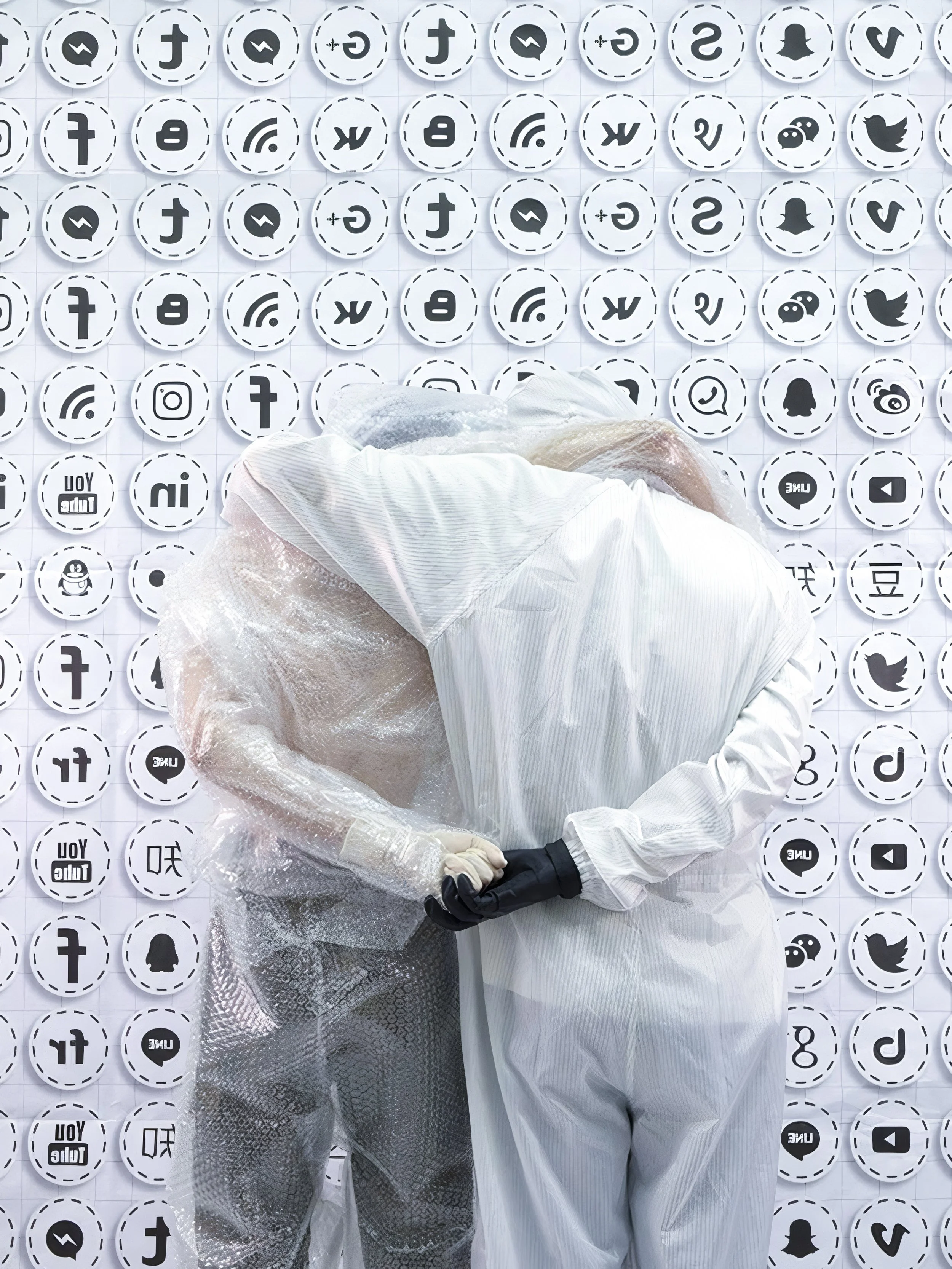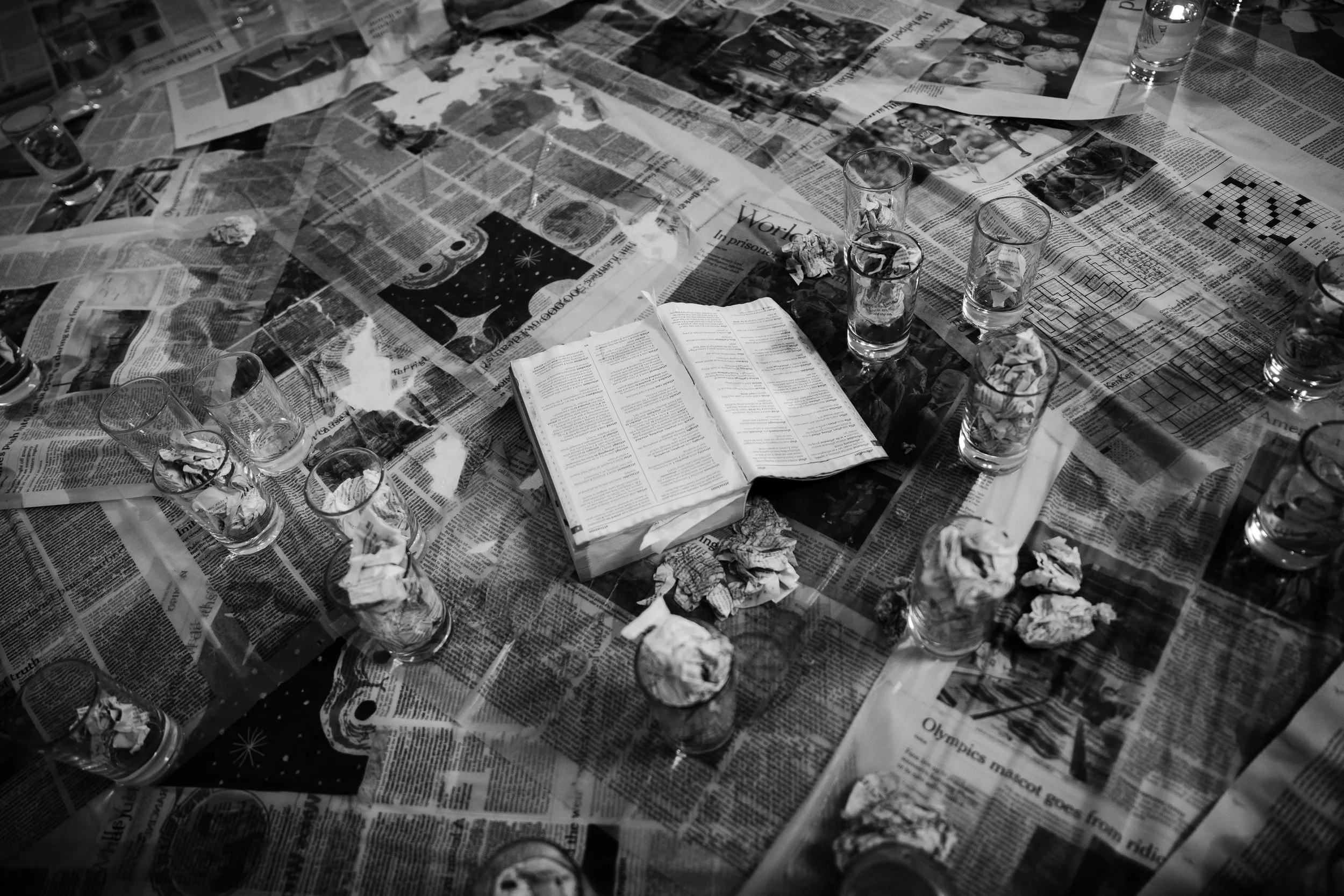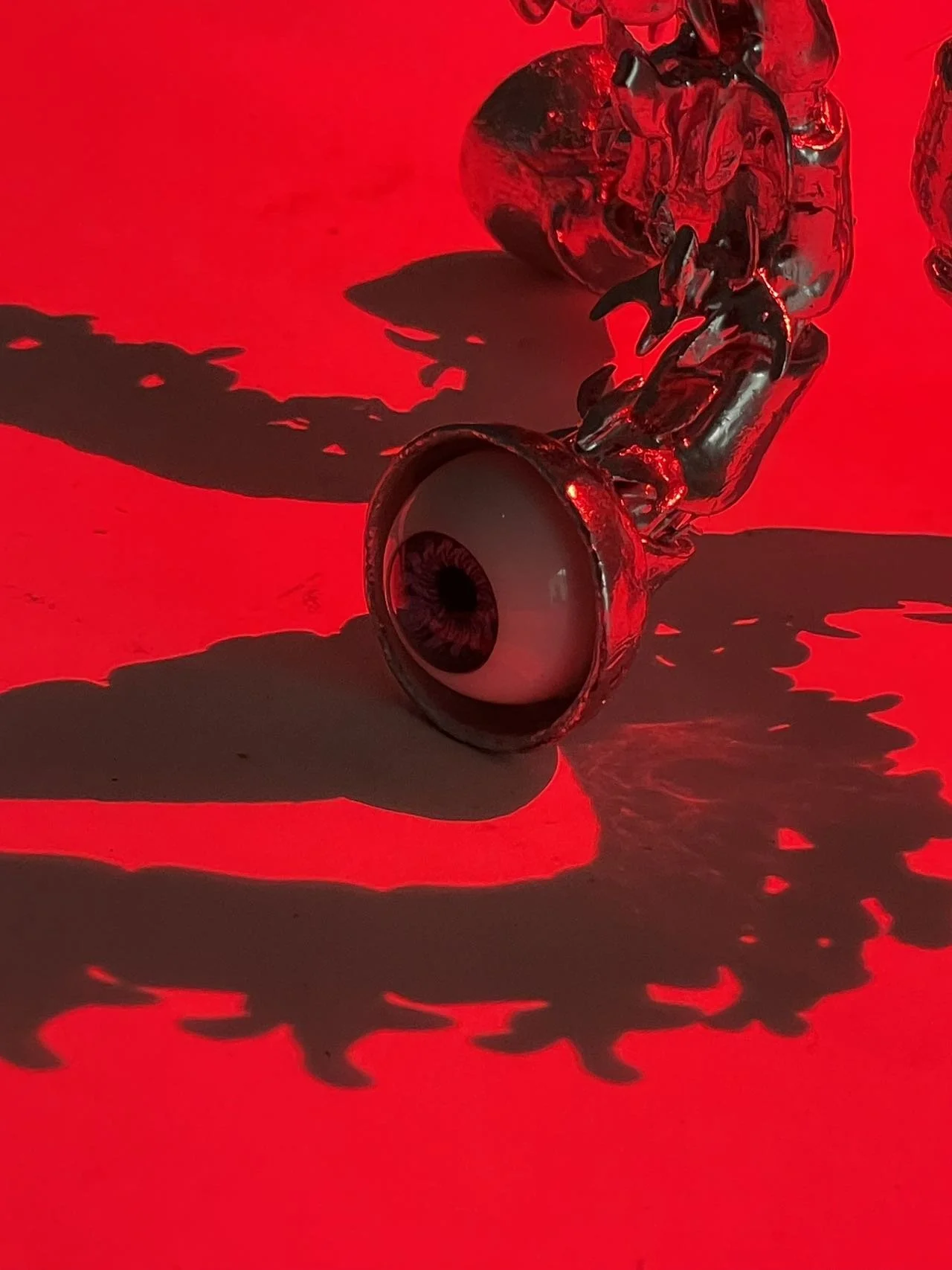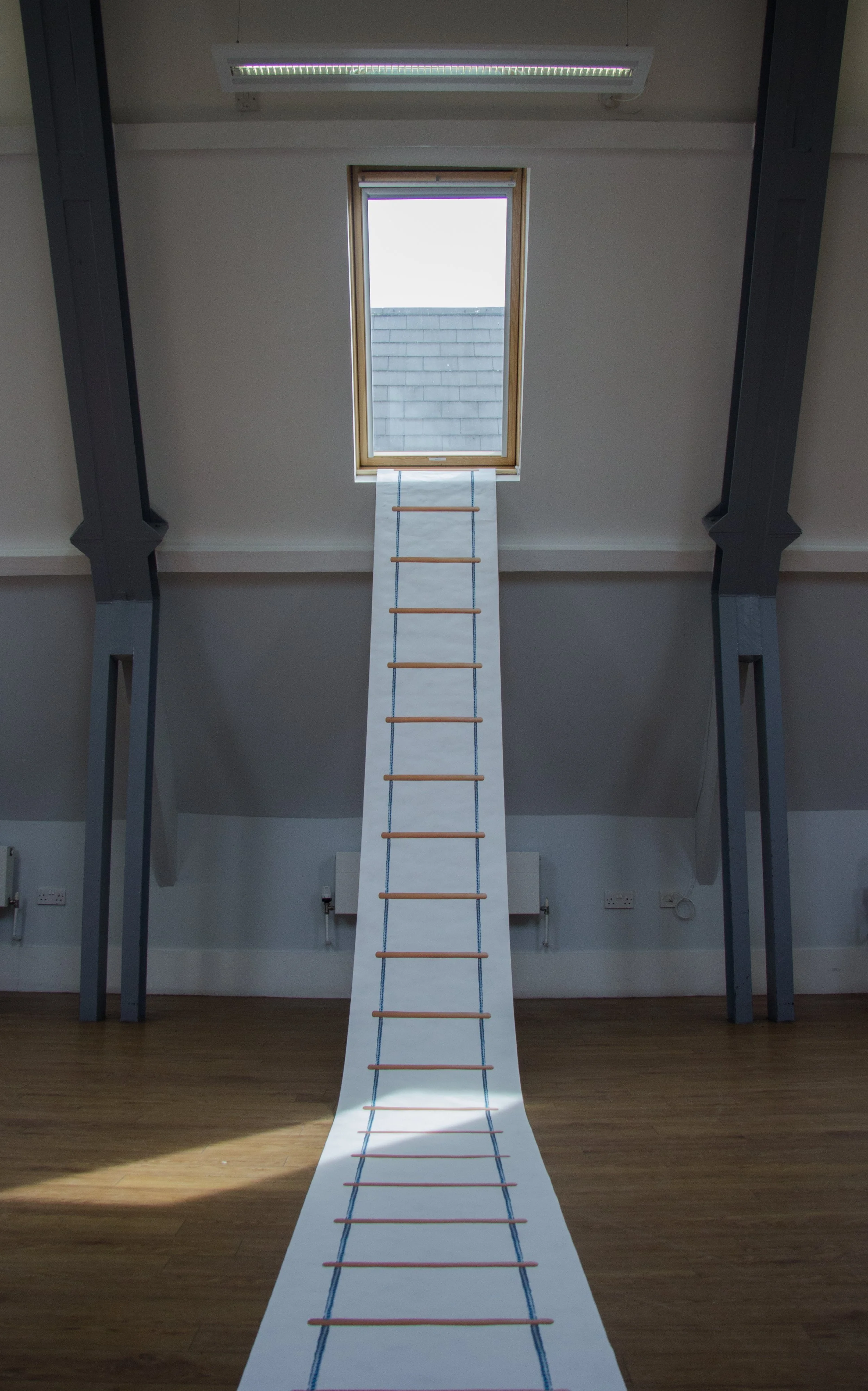Wei-Fang Chang is a video designer and creative technologist from Taiwan, based in Los Angeles. With extensive experience in projection design, motion graphics, and interactive programming, particularly in live experiences, she shapes her visual language through video design in theatre, dance, and interactive installations.
INTERVIEW | R. Scott MacLeay
R. Scott MacLeay is a photographer and videographer based in Brazil. He views all lens-based art as documentary, regardless of the subject. His new media art deals with existential themes, often employing the first person in performance-based work. He explores situations rather than moments and as such, his work is focused on notions of evolution, transformation and repetition.
INTERVIEW | Zhuyang Liu
Zhuyang Liu is a trans-media artist whose practice spans sound, performance, film, moving images, writing, and installation. Their work interrogates identity, labour, technocracy, and the body through immersive, often surreal narratives. Zhuyang’s hybrid works challenge perception, collapsing reality and fiction into multisensory experiences that question how we live, relate, and imagine.
INTERVIEW | Lexiong Ying
Lexiong Ying is an interdisciplinary artist working across multiple visual media. Her practice is driven by a critical engagement with contemporary society, drawing upon personal experiences and an acute awareness of the evolving social landscape. Her work explores themes such as the fragility of human relationships, the illusions of consumerism, ecological consciousness, and animal welfare.
INTERVIEW | Tianjiao Wang
Tianjiao Wang works with film, photography, and installation. She was born in Beijing and is currently based in Chicago. She considers her films to be experimental documentaries. She anticipates that this medium can reveal subtle shifts and new perspectives in even the most ordinary things. She works both digitally and on celluloid. Her subjects and inspirations largely stem from her mother.
INTERVIEW | Mingyong Cheng
Mingyong Cheng, originally from Beijing and now based in California, is an interdisciplinary artist working at the intersection of AI, generative art, and environmental research. Working across generative animation, performance, real-time systems, and immersive installation, she develops hybrid environments where nature, data, and memory converge through machine vision and embodied experience.
INTERVIEW | Maxim Frumkin (Max Naum)
Maxim Frumkin is an award-winning visual artist based in Canada, working across experimental video, art photography, and mixed media. His practice investigates the fluidity of identity, how we perform, reshape, or resist ourselves to be seen, to belong, or to disappear. He creates flexible, unstable narratives where meaning loops, blurring the lines between memory, persona, and authenticity.
INTERVIEW | Clara Grabowiecki
Clara Grabowiecki is an Argentine visual artist, born in Buenos Aires in 1983. Her work is a journey into an interior cosmos. Passing through the figurative to the abstract, the images construct cosmologies of the imagination. Her images are recognisable by a confident colour palette of tropical tones and metallic glimmers that connect to a collective unconscious cultural psyche.
INTERVIEW | Chu Ling-Jung & Tang Zi-Xian
Chu Ling-Jung & Tang Zi-Xian are both Taiwanese artists. They are both based in Taipei, where they live and work. Their collaborative project, Clearing the Text, describes the dyslexic patient's intense desire to comprehend text, the despair of being unable to read, and the attempt to regain the ability to read by integrating their body into the text through various methods.
INTERVIEW | mole^3
mole^3 is a Japanese printmaker and visual artist whose work explores the intersection of traditional printmaking and digital media. She creates using open data, images, sound, generative art, and woodblock printing. Viewing coding as a form of printmaking, she considers on-screen outputs to be the digital equivalent of physical prints.
INTERVIEW | Mingu Kang
Kang Mingu is a filmmaker, media artist, and writer based in South Korea. His works often depict vulnerable figures within society, exploring themes such as redevelopment, technological transformation, and mythology while emphasizing a warm perspective and hope for the marginalized. Through these narratives, he reflects his desire for comfort and warmth in both his own life and the society.
INTERVIEW | FEYU (Yu Li)
FEYU (Yu Li) is a Chinese multimedia artist and filmmaker based in London, known for creating alternative realities and fantasies using emerging technologies. Her practice researches emotional introspection, examining how technology shapes spatial, philosophical, and cultural infrastructures. She focuses on themes like agency, shame/desire, and cultural identities in digital landscapes.
INTERVIEW | Rafael Alejandro López
Rafael Alejandro López is a Swiss-Venezuelan filmmaker and graphic designer based in Los Angeles. Raised between countries in seemingly perfect opposition, Lopez's personal work explores flawed political systems and the duality of the human condition. Through the narrative micro-lens of human experiences and dance, Lopez's aesthetic oscillates between absurdism, fiction, and realism.
INTERVIEW | Masaki Iwabuchi
Masaki Iwabuchi is a New York-based interdisciplinary designer, artist, and futurist. Masaki believes we need alternative visions and worldviews to overcome numerous wicked problems in this century, such as climate change, forced migration, political and social polarization, etc. Therefore, he is interested in challenging our societal structures, vested interests, and Cartesian belief systems through his works.
INTERVIEW | Mengmeng Luo
Mengmeng Luo (Momo) is a Chinese visual artist born in 1999 in Changsha, Hunan province, now living and working in London. Her artworks consist of visual images and sound effects. She specialises in creating scene-based fragments of cinematic space that combine to form non-temporal sequential narratives and are characterised by her own personal magical realism and black irony.
INTERVIEW | Farrah Li
Farrah Li is a Chinese Photographic and Installation artist based in London. Her creative process revolves around the exploration of materials such as balloons, plastic, strings, and fabric, as she seeks to unearth hidden dimensions and identities within them. By manipulating and transforming these materials, she aims to challenge conventional notions and expand the boundaries of perception.



























